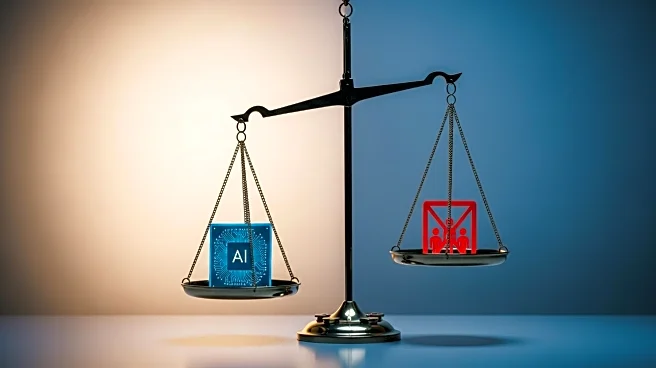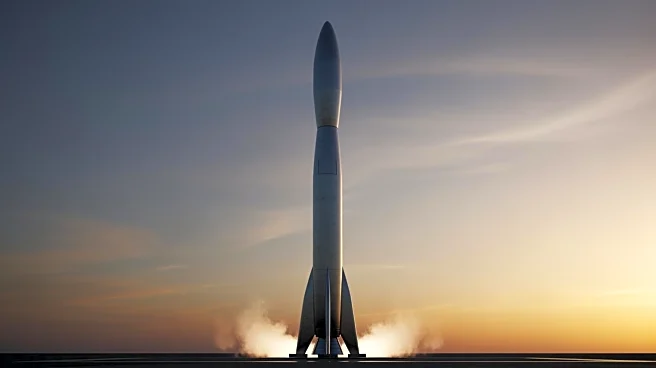What's Happening?
Ray Dalio, founder of Bridgewater Associates, has expressed concerns about the potential for artificial intelligence (AI) and humanoid robots to exacerbate wealth inequality. Speaking on 'The Diary Of A CEO' podcast, Dalio warned that these technologies could disproportionately benefit the top 1% to 10% of the population, leading to significant societal challenges. He highlighted the potential for AI to render many professional jobs obsolete, questioning the need for roles such as lawyers and doctors if robots with advanced intelligence become widespread. Dalio suggested that a redistribution policy might be necessary to address the resulting economic disparities.
Why It's Important?
The implications of Dalio's warnings are significant for U.S. economic and social policy. As AI and robotics continue to advance, the potential for job displacement could lead to increased unemployment and social unrest. The concentration of wealth among a small elite could further polarize society, necessitating policy interventions to ensure equitable distribution of resources. Dalio's call for a redistribution policy underscores the need for proactive measures to address the economic disruptions posed by technological advancements. This could influence future policy debates on income distribution and social welfare.
What's Next?
The discussion around redistribution policies, such as universal basic income, may gain traction as policymakers and industry leaders grapple with the challenges posed by AI. The potential for increased automation to disrupt labor markets could prompt legislative action to mitigate its impact. Stakeholders, including government officials, business leaders, and civil society groups, may need to collaborate to develop strategies that balance technological progress with social equity. The ongoing debate will likely focus on how to implement effective redistribution mechanisms without stifling innovation.
Beyond the Headlines
Dalio's remarks highlight broader ethical and cultural considerations surrounding AI and automation. The potential for technology to replace human labor raises questions about the value of work and the role of humans in an increasingly automated world. The debate over redistribution policies also touches on philosophical issues regarding fairness and the social contract. As AI continues to evolve, society may need to redefine its understanding of work, productivity, and economic value.









